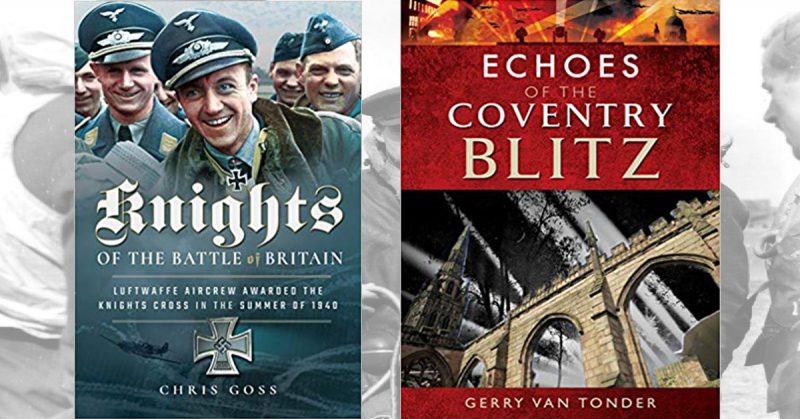First up we have a new book from Chris Goss that is a most welcome addition to the canon of Battle of Britain literature. In it he gives pen portraits of the 121 Luftwaffe aircrew awarded the Knight’s Cross in respect of their actions in the tumultuous year of 1940.
A number of the men are or used to be household names while many of the others are the stuff of footnotes. The important thing is to have them brought together in a single volume that is both informative and entertaining to read. The book is filled with photographs of the men concerned and their stories offer an alternative window on the summer of 1940 that remains dominated by tales of The Few.
Mr Goss offers us his subjects in chronological order, mixing fighter jocks with bomber and reconnaissance aircraft crewmen. All the heroes are here – from Galland and Molders to Wick and Priller alongside a sheaf of men I’d never heard of previously, resulting in my knowledge expanding considerably. More importantly I now have this excellent book to refer to as and when I need it.
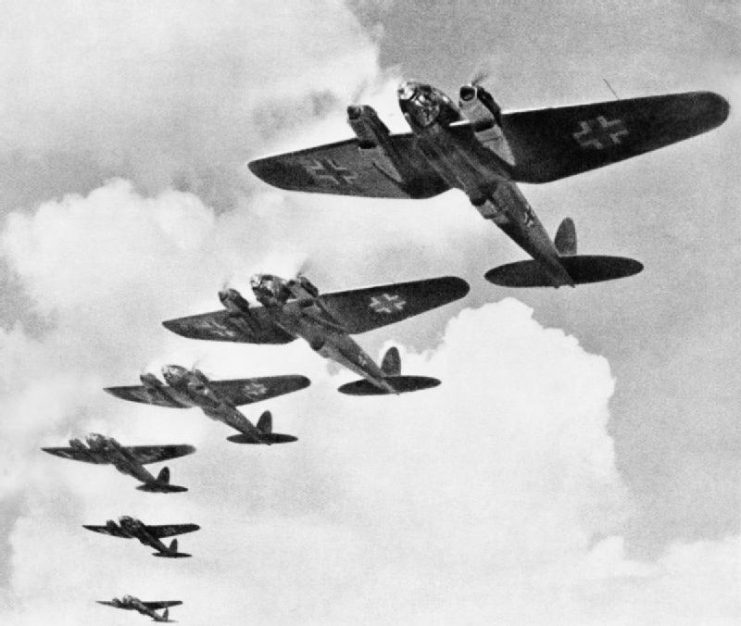
Chris Goss is a prolific author with a deserved reputation for quality products and this one is right up there without any shadow of a doubt. While British and Allied pilots from the Battle of Britain will always retain the lions share of admiration, it is fair to say that respect for German airmen has increased markedly in modern times.
This book underscores that process and I have no hesitation recommending it to anyone with a strong interest in the Battle of Britain or the Luftwaffe in general.
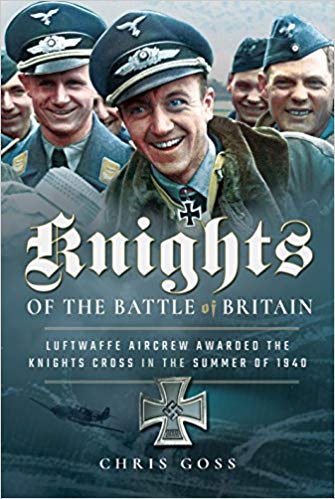
KNIGHTS OF THE BATTLE OF BRITAIN
Luftwaffe Aircrew Awarded the Knight’s Cross in 1940
By Chris Goss
Frontline Books
ISBN: 978 1 52672 651 3
1940 saw the beginning of the Blitz when the Luftwaffe began bombing British cities in earnest. One of the most infamous acts was the devastation of the mediaeval city of Coventry on the night of 14th/15th November 1940 when the Luftwaffe used X-Gerät radio beams to navigate to their target.
Coventry was the home to major automotive and armaments industries feeding the British war effort and it could be considered a legitimate target within the scheme of things.
The raid almost completely destroyed the mediaeval heart of the city and with it the Norman cathedral of St Michael’s and several other irreplaceable buildings. Many hundreds of people were killed or injured.
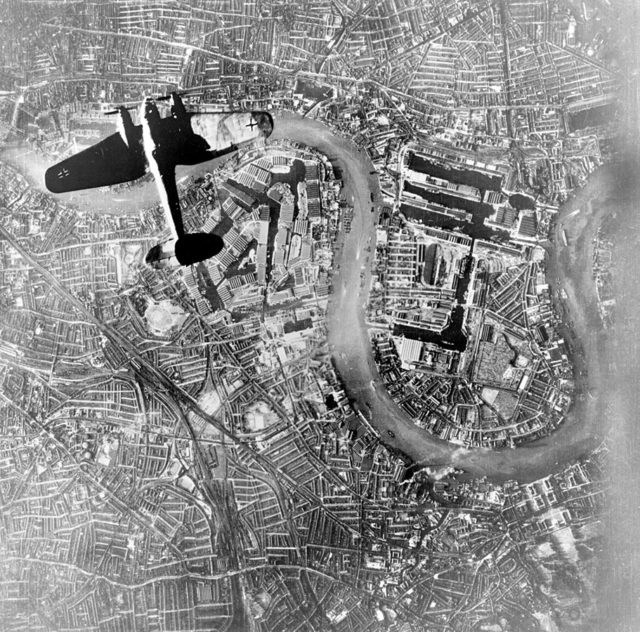
But the raid was not the only one to impact on the city and this interesting book by Gerry van Tonder seeks to put it all into context and then look at how the city was rebuilt after the war. The author examines a series of events, bringing locations and people to life backed up by a number of montages mixing contemporary photographs with modern images.
The wartime history sits well with the post war period when the architect Donald Gibson designed a new city to be built out of the wreckage. So much of the mediaeval and historic centre of the city had been raised to the ground that he was able to create a new Coventry from virtually a blank canvas complete with pedestrian only precincts.
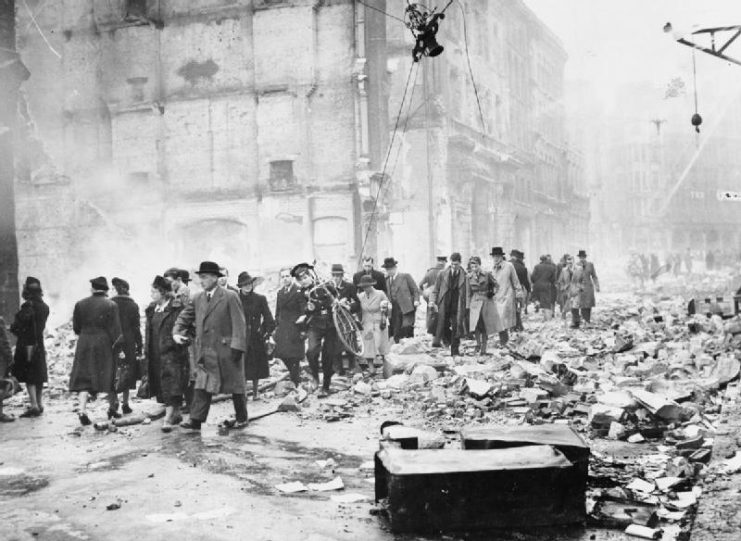
The shock of what happened to Coventry in 1940 has inextricably linked the city with Rotterdam and Warsaw as places that gave rise to the vengeful element of the altogether more destructive Allied bombing offensive against Germany. Arthur ‘Bomber’ Harris summed it up well when he said the Germans had sowed the fire but they would reap the whirlwind.
Coventry has, in recent years, been linked with the city of Dresden; perhaps the best-known victim of the most destructive and for some, futile, Allied bombing of the war.
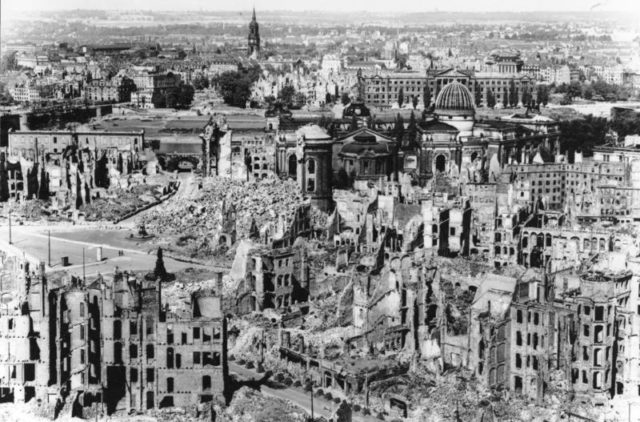
This is an entertaining and quite striking book that works well. While I’m not so sure I am wholly convinced by the montages, the imagery works well enough and the structure of the book is straightforward and easy on the eye. All in all the book offers a look at an important part of the history of German air attacks on Britain and it projects pride in a city that rebuilt itself after the very worst of times.
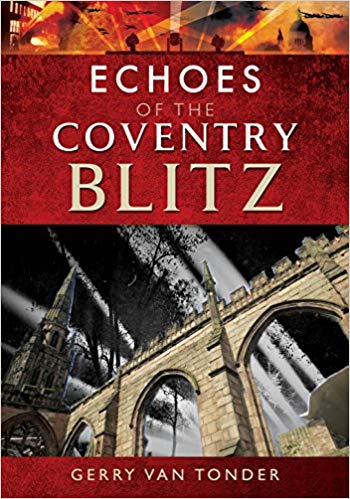
ECHOES OF THE COVENTRY BLITZ
By Gerry van Tonder
Pen & Sword
ISBN: 978 1 52670 967 7
Reviewed by Mark Barnes for War History Online
